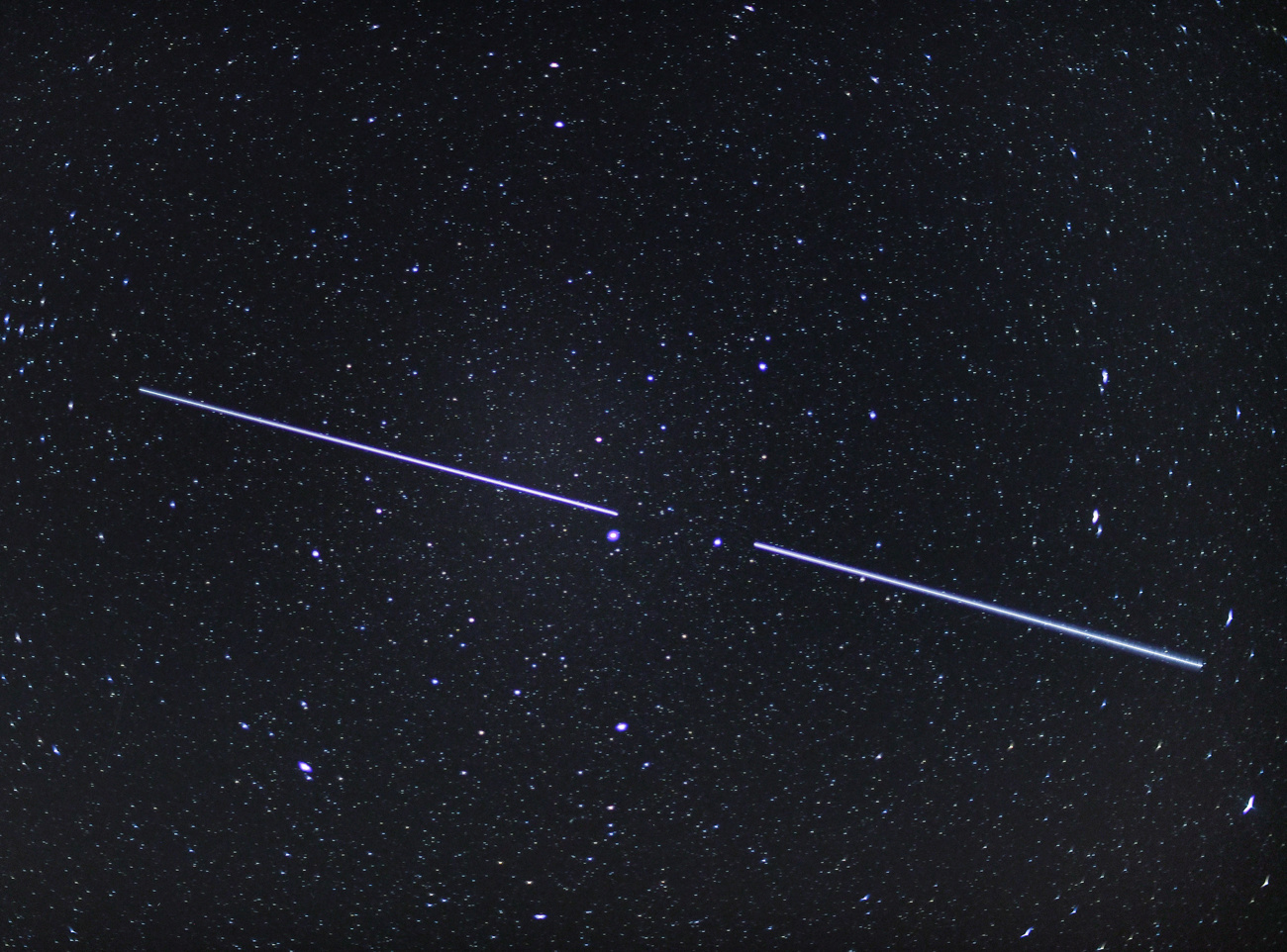
Mystery object spotted over Switzerland deemed satellite not meteor

A bright trail of light in the evening sky caused a sensation over large parts of south-west Germany and Switzerland.
Experts from the Federal Office of Civil Protection (FOCP) were quickly able to clear up the situation: according to them, the fast-moving, highly luminous celestial spectacle on Tuesday evening was a Starlink satellite that entered the Earth’s atmosphere over Switzerland and was visible in the south-west. The Space Situational Awareness Centre of the German Armed Forces provided the FOCP with this information, said a spokesperson.
Huge meteor spotted in Zug, Switzerland: 21:30 CET, 27.08.2024#meteorExternal link #meteorshowerExternal link pic.twitter.com/N6xjphupszExternal link
— Alexander Ens (@Alexander__Ens) August 27, 2024External link
Starlink satellites belong to Elon Musk’s aerospace company SpaceX. They are designed to make fast internet available everywhere and fly at an altitude of around 500 kilometres. SpaceX is by far the largest operator with more than 5,000 Starlink satellites in Earth’s orbit, with around 42,000 planned. According to the company, Starlink satellites pose no threat to public safety.
In several cities in Baden-Württemberg, people called the police because they had seen the glow in the sky at around 9.30 pm.
According to the US space agency NASA, inactive satellites or other space debris at an altitude of less than 600 kilometres fall back to earth within a few years. They usually burn up on re-entry into the atmosphere. Millions of pieces of debris are currently flying around the earth as space debris. In addition, according to the European Space Agency ESA, there are more than 12,500 satellites orbiting the planet – many of which are no longer functional.
This can also pose a threat to space travel. The Chinese space station “Tiangong” was hit by space debris months ago and had to be serviced. The International Space Station (ISS) also has to dodge debris time and again.
Adapted from German by DeepL/ac
This news story has been written and carefully fact-checked by an external editorial team. At SWI swissinfo.ch we select the most relevant news for an international audience and use automatic translation tools such as DeepL to translate it into English. Providing you with automatically translated news gives us the time to write more in-depth articles.
If you want to know more about how we work, have a look here, if you want to learn more about how we use technology, click here, and if you have feedback on this news story please write to english@swissinfo.ch.

In compliance with the JTI standards
More: SWI swissinfo.ch certified by the Journalism Trust Initiative

























You can find an overview of ongoing debates with our journalists here . Please join us!
If you want to start a conversation about a topic raised in this article or want to report factual errors, email us at english@swissinfo.ch.